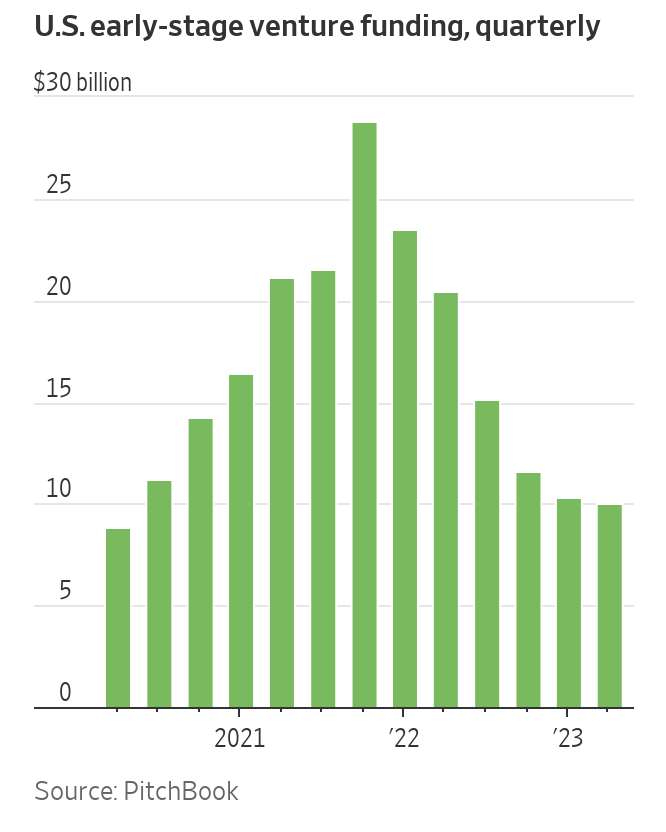Issue 147: Where Have All the Smart Cities Gone?
Welcome to Backstory, a weekly newsletter turning global technology shifts into a three-minute read. This week, we’re talking smart cities. – Mary Ames, Director of Strategy
THE BIG TAKE
Where Have All the Smart Cities Gone?
Smart cities are changing. The smart cities concept was born during the 2008 financial crisis and promised everything from universal Wi-Fi to application-based citizen services. It was widely adopted across the world’s leading cities, with Dubai leading the charge. While enthusiasm has slightly diminished, smart cities are evolving in lockstep with the latest technological trends like artificial intelligence. Mary Ames, Xische’s Director of Strategy, recently published an in-depth look at the changing nature of smart cities.
Digital Transformation. The technological innovations that ignited the smart cities movement are now entry-level requirements for global competitiveness, Ames writes. For government leaders, digital is no longer a choice. From service delivery to environmental protection to equity and inclusion, a robust, secure, and available digital infrastructure is essential to sustain a productive and healthy community.
Willingness to adapt. The next frontier is AI. We have all seen the power of AI to transform daily life through platforms like ChatGPT. Now, it’s only a matter of time before we see government services and municipalities rush to AI. Even though the debate about AI ethics is still open, city leaders need to be ready to embrace this technology and ensure that AI is put to beneficial use for city residents. This is the next horizon for smart cities.
QUOTE OF THE WEEK
“People travel to faraway places to watch, in fascination, the kind of people they ignore at home.”
– Dagobert D. Runes, philosopher
CHART OF THE WEEK
This week, we are thinking about the AI start-up boom. According to the Wall Street Journal, the start-up boom shows signs of cooling. There is certainly a shift taking shape in the AI sector.
OUR VIEWS THIS WEEK
Economic horizon: Circular economies are rising. The idea of an economic model focused on reducing, reusing, recycling, and remanufacturing resources to ensure growth has transitioned from academic theory to a guiding ideology. This week, we took a deep dive into how circular economies operate and explored the benefits the model would have in Dubai. The potential upside is staggering.
Women in the 4IR: The Fourth Industrial Revolution. It’s here, and it’s transforming the future of work. The coming transformation of labor could improve the position of women in the workplace. If we start a conversation about the role of gender in 4IR today, we can lay the groundwork for a more equitable future tomorrow. In this piece published by Xische, Mary Ames explores the issues at play. She argues that we must realize the invaluable perspectives women can bring to designing and regulating the future to explore the full potential of 4IR.
SPOTTED ELSEWHERE
AI sentiment cools. We have been bullish on the promise and power of artificial intelligence for years. AI is one of the most exciting areas in technology today. Yet, we can’t deny that the frenzy around AI is starting to cool. OpenAI, the company behind ChatGPT, is experiencing a slump in popularity. This is forcing the company to pivot to business clients. At the same time, new research warns that AI could flood the internet with less-than-ideal content. Given all the rage about AI this year, it’s natural for the hype to take a breather.
Do hard things. Here is some good news: You can do hard things. That’s right. You can accomplish almost anything you want when you put your mind to something. That’s the message of this fun newsletter post from Nat Eliason. His argument is that doing hard things gets easier over time. Our self-image is composed of historical evidence of our abilities, Eliason writes. “The more hard things you push yourself to do, the more competent you will see yourself to be. If you can run marathons or throw double your body weight over your head, the sleep deprivation from a newborn is only a mild irritant. If you can excel at organic chemistry or econometrics, onboarding for a new finance job will be a breeze.”













